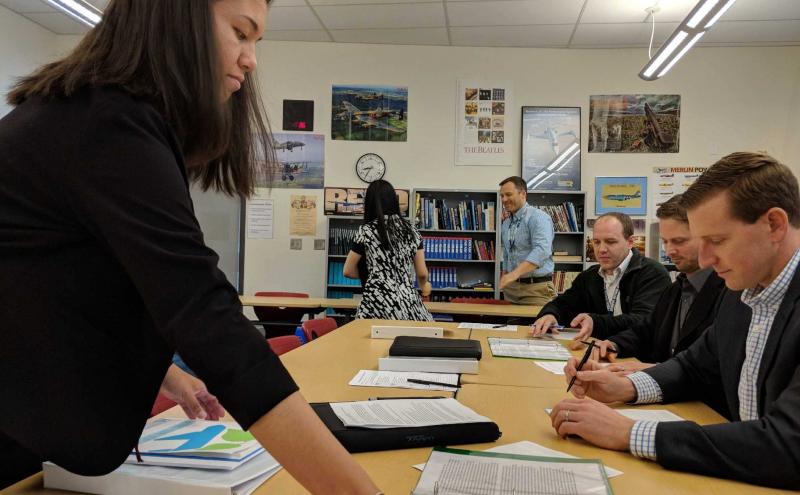
As a Port Commissioner, I spend a lot of time with the Port’s expert technical staff trying to solve the dual challenges of maximizing our facilities for both capacity and sustainability. We have a lot of smart people at the Port, but last month I had the opportunity to hear fresh ideas on these goals from an unexpected source: sophomores at Highline School District’s Raisbeck Aviation High School.
Over the last 11 years, staff at Sea-Tac Airport have worked with a group of teachers at Aviation High to develop an environmental challenge for the school’s sophomore class. The intent of the challenge is to inform and educate students on environmental aspects and implications surrounding aviation, increase understanding for the complexity surrounding major projects and efforts and spur interest in the variety of careers connected to aviation. This year’s challenge was particularly timely: “come up with a well thought out strategy to modernize Sea-Tac Airport’s South Satellite that minimizes energy and water use, gives passengers a Northwest ‘sense-of-place,’ satisfies the airlines’ demands, provides greater revenue potential for the airport and meets the Port’s financial objectives.”
As a judge of this year’s competition, I had the opportunity to evaluate four of the groups’ proposals, which included wastewater recapture, geothermal heating and cooling, living walls, and other sustainability amenities. Not only were the presentations exemplary, but the students were professional and informative. At various points, we panelists had to remind ourselves that these were sophomores, and not college or graduate students!
Aviation High — which the Port provided a quarter of the building costs for — is a fantastic example of the kind of STEM education that is essential to prepare today’s students for tomorrow’s jobs. While it’s hard to predict exactly what skills will be necessary for tomorrow’s jobs, everyone will need this kind of critical thinking ability to observe, analyze, and make decisions about a process or problem. Whether you are a ship captain determining how best to navigate a storm, an engineer tackling a difficult problem in the design of a new airplane component or a nurse determining the best care for a patient, critical thinking is a key component of success and is the groundwork for a healthy and sustainable economy.
As we move forward, I am looking to expand opportunities for our K-12 students in critical thinking and STEM education. With the support of industry partners, Seattle Public Schools, and the Seattle Region Partnership, we are hoping to increase hands-on learning in the maritime sector, which represents 60,000 jobs in the county. With much of the current workforce nearing retirement, the need to prepare the next generation is urgent.
For more information on Raisbeck, including enrollment and admissions, please visit the Highline Public Schools page. For more information about the Port’s aviation and maritime internships, check out our Careers page.


